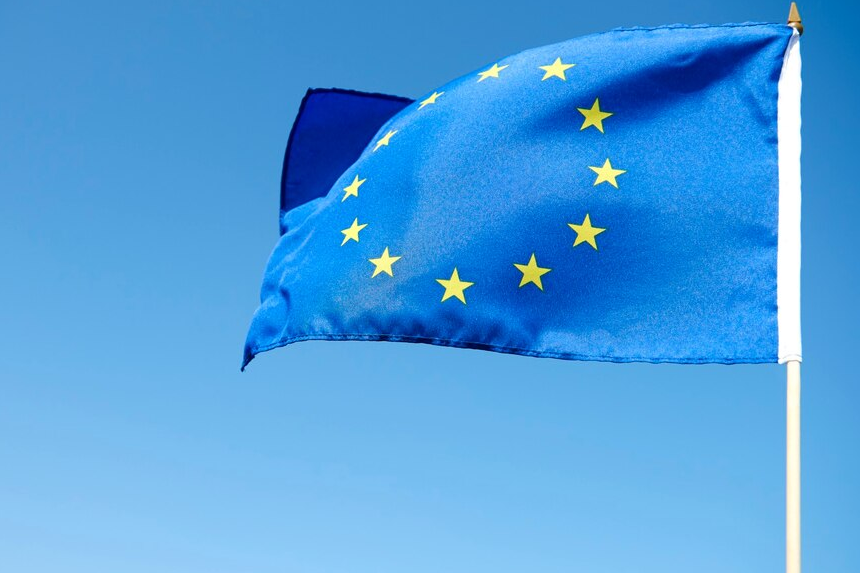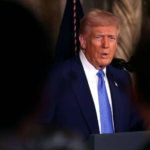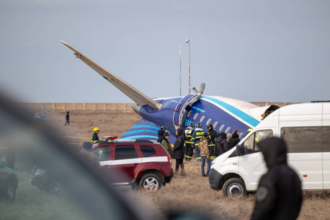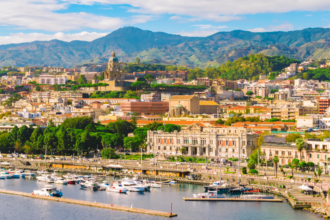French President Emmanuel Macron wasted no time grabbing the phone to Donald Trump and then separately to Ukraine’s Volodymyr Zelensky Monday night. This followed the departure from the dazzling Élysée Palace in Paris of other leaders of the largest military nations in Europe. But what successes the French president might really claim?
Did the emergency security summit go well?
Still up for debate is the result. Critics of Europe sometimes complain that there is rarely a clear solution to such issues. Though they often speak with different voices, different European countries may share ideals and aspirations. Under the black-and- white mindset of today, which permeates Washington and Moscow—where the world is split between the strong and the weak—this European nuance is sometimes seen as a flaw. European security remains an urgent concern, with governments striving to show a united front.
Monday’s performance fell short of expectations under such a merciless glare. Leaders had inspired hope, and from the time the summit was announced, it dominated headlines. Key players including the head of NATO, European Union officials, and the leaders of the most powerful military nations in Europe were gathered here. Their main goals are to grab Donald Trump’s attention, wow him, and get him seated at the table for forthcoming peace negotiations with Vladimir Putin of Russia about the future of Ukraine.
However, when the summit concluded, it was obvious that little had been gained in terms of specific promises. While discussions were robust and covered a range of security-related issues, no definite plan developed to cement Europe’s position in future negotiations. The absence of a strong, cohesive posture accentuated worries about Europe’s struggle to establish itself as a major geopolitical actor.
Why Is Europe Feeling Sidelined?
Despite its geographical and political involvement in the topic, Europe has been smarting at being ignored in negotiations concerning Ukraine. The course of Ukraine will surely affect the whole continent. Should President Putin come out of any negotiations confident, European security agencies worry he may turn his attention to questioning the sovereignty of other countries. The Baltic states, who border Russia, feel especially insecure.
The realization that Europe cannot afford to be docile in this battle was one of the main lessons learned from the Paris summit Although the United States is still Ukraine’s biggest military supporter, European politicians are beginning to feel that they have more duty for the defense of their continent. Still, European countries differ on how to move even with this awareness.
On Monday, European leaders fell short in bolstering their posture. As Donald Trump has long asked, they agreed to higher defense spending, but this choice comes in spite of domestic worries about stressed government budgets and an ongoing cost of living issue. The meeting even discussed the hitherto unimaginable possibility of sending European troops to Ukraine to oversee a future ceasefire—an concept that was off the table just weeks ago.
Though these conversations fit American interests, European leaders battled to create a strong, cohesive narrative that would appeal to the restless businessman turned U.S. President. Simple, straightforward messages from Washington often have more weight, thus the lack of a strong, unambiguous statement from Paris was seen as a lost chance for proponents of European security.
Europe’s reliance on NATO for security presents still another big obstacle. Although NATO offers a solid security structure, it also means that European countries have to closely collaborate with the U.S., which has occasionally caused conflict. Some European politicians say that Europe should move towards a more autonomous defense organization, while others believe that NATO should remain the primary security guarantor.
Is Trump's demands frustrating Europe?
Responding to Donald Trump’s requests is aggravating many European leaders more and more. This frustration was particularly evident in German Chancellor Olaf Scholz’s reaction following the Paris summit.
“This is absolutely premature and a totally inappropriate time to be having this conversation [on deploying European troops to Ukraine]. I’m even a little irritated by these debates,” Scholz acknowledged openly.
Regarding Ukraine, Scholz argued that the United States and Europe had to share responsibility equally. However, his political future is uncertain, with elections in Germany planned for Sunday—an election he is widely anticipated to lose. Under increasing pressure, Scholz has lately shown an unexpectedly emotional side that reflects the increased burden on European leaders.
Many European officials believe Trump is keen to pull the United States out of Ukraine and focus his attention elsewhere, maybe toward China. They also worry that he plans to destroy the defense shield the United States has given Europe following the end of World War II. Apart from Europe having to fend for itself, the concern is that it could also have to defend itself against a change in U.S. policy under Trump, therefore compromising European security.
Furthermore, there is a more general worry that Trump’s “America First” policy would cause more isolationism, therefore leaving European countries to deal with their security issues without American backing. This has prompted some European leaders to explore new defense partnerships, including potential collaborations with countries such as Japan and Australia.
Is the UK Approaching Things Differently?
Unlike these European worries, the prime minister of the United Kingdom adopted a somewhat different attitude after the Paris conference. He seemed intent on using the “special relationship” between the US and the UK as a link between Washington and Europe.
At home, Sir Keir Starmer underlined to citizens that European security still serves the national interest for the United Kingdom. Russia’s face-to—-face preparatory talks with the United States in Saudi Arabia seemed to him indifferent. While no date has been established for the highly anticipated summit between Trump and Putin, Sir Keir is eager to grasp the opportunity to press Europe’s case when he flies to Washington next week for his own meeting with the U.S. president.
“The U.S. must stay by its allies’ side,” he asserted.
If it doesn’t, European leaders will need to convene again until they can find a way forward for Ukraine and their collective security. There are big stakes. Should they fail once more, the shadows towering over European security will only get deeper.
One thing is certain as Europe struggles with these issues: the continent cannot afford to be lazy either through NATO or autonomous defense projects; so, European countries must cooperate to guarantee their own security. If they fail to do so, companies risk becoming increasingly vulnerable in an ever-changing global landscape. The future of European security and whether the region can at last assert itself as a powerful global force depend on the next months.








